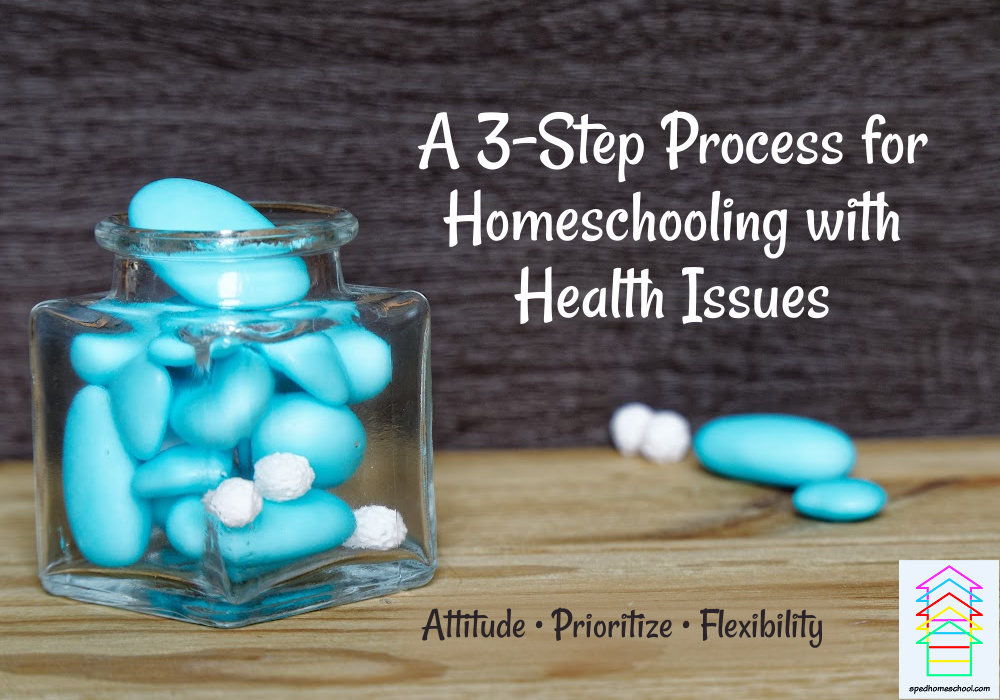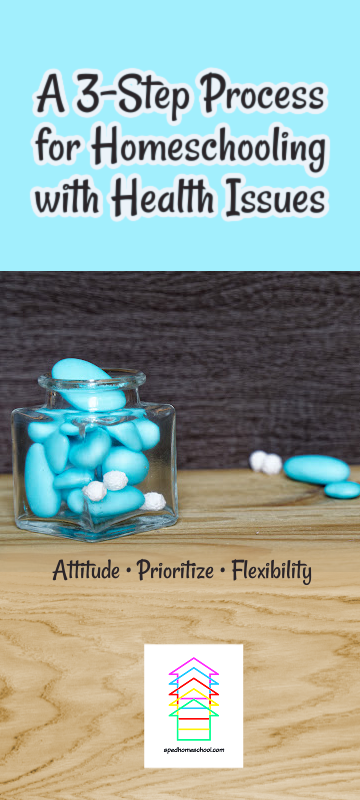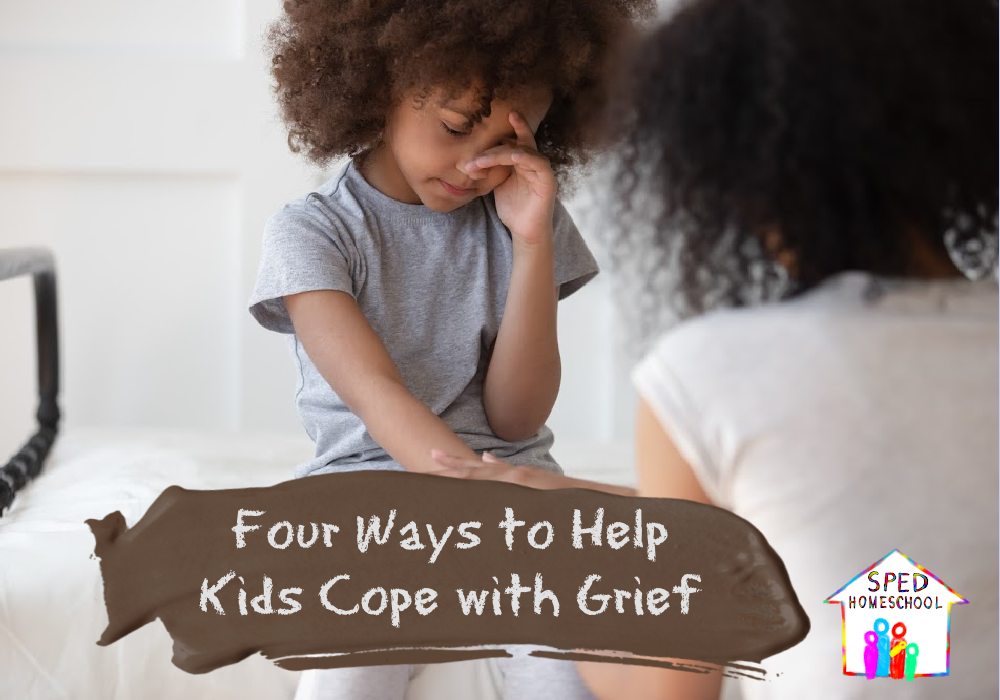
By Charl Rae Cobb
Denial, anger, rationalization, bargaining, depression, anxiety, and eventual acceptance. In nursing school, I learned that everyone goes through several stages during the grieving process. I was taught to help support people whose loved ones have died. What I now recognize is that every diagnosis, whether it is medical or not, brings out these emotions. Realizing it is a natural, and unfortunately, a necessary process helps our family deal with each new health challenge.
Whether we are dealing with the symptoms of an acute illness like a virus or an allergic reaction, a long-term condition such as an auto-immune disorder or cancer, or an unexpected change in medication, illnesses wind up disrupting our current and carefully planned academic and household schedule. Honestly, it can be upsetting, overwhelming, and confusing until I remind myself that teaching my child how to handle change is as important as teaching math and writing skills.
Some days I want to cry because of the unfairness and disappointment of a new medical diagnosis or medicine that we now have to deal with. At times, I am anxious or fearful that the academics will slide. Sometimes I feel emotionally and or physically exhausted. Some days I want someone else to take over the multiple roles I am responsible for in our home: teacher, cook, laundress, chauffeur, social coordinator, cheerleader, budget balancer, time manager, etc. Just so that I can be the mom and/or nurse that my child needs or I can just focus on my own health needs or those of another family member.
After I allow myself some private time to identify that as part of the grieving process, I find myself better prepared to move myself and my student who studies and learns from everything I do as well as say into the acceptance stage of the grieving process where we can empower ourselves with education and a can do attitude. This has become our “Step Number One“.
Step Two, is a chance to reassess our priorities. We like the analogy of filling a glass jar with large rocks, small rocks, sand, and water. No one can be successful in filling the jar with all the items if they try to put all the small things in first. Anyone can be successful if they put the largest rocks in, then the smaller rocks, then the sand followed by the water. Our family finds success and satisfaction when we prioritize our needs and our wants. This becomes an important life lesson that translates into financial budgeting and time management as well as health and academics. We also find this to be a powerful opportunity to teach discernment. If our child learns a healthy decision-making process so that he can continue to do so independently as an adult, then we have invested our time in a worthwhile endeavor rather than wasting it with worry.
Step Three is based on Step Two. If one or more of our family members need to focus on sleep, bedrest and antibiotics or other treatments to recover from a short-term illness, that becomes the priority and other things can wait. We may choose to progress slowly toward reading literature, watching documentaries, or playing games prior to resuming academics. It has been helpful to record what we did in our lesson planner retrospectively during these times. We have been pleased to see that we actually have satisfying discussions about a story we read together or a documentary we watched and were inspired to explore more about that particular topic or interest. When social distancing is due to illness, it has been helpful to maintain connections with others via FaceTime, phone calls, texting, and letter writing. It has amazed me at how much my child and his pen pals are lengthy and detailed letters to each other as well as watching their handwriting, typing, and spelling skills improve!
If I am the one who is ill, my child may proceed with lessons he feels more confident about. He may give me a short progress report each day or ask his dad or grandmother to help him work through a question if he did not find understanding by searching the Internet or textbook. If we are dealing with a long term health challenge or a newly diagnosed learning disability related to an illness, we tend to approach it as a health related unit study and learn what we can about the symptoms, treatment or therapy, etc. Therefore we can plan for success with physical health, social interactions, and schoolwork. Occasionally, this has led to combining nutrition and cooking lessons with biology, physics, and physiology in fun and memorable ways!
Every family goes through health challenges in their own unique ways. I hope that sharing our perspective might encourage someone else, as I have been encouraged by other parents who are homeschooling through medical challenges.
Charl’s work experiences include writing, education, healthcare, and art. She loves helping homeschoolers learn how to identify dominant learning styles and how to plan strategies for success. Respecting the individual requirements of her multi-generational household, she strives to create tasty, family-friendly meals while juggling multiple dietary requirements, provide social and educational activities that encourage those dealing with multiple special needs, and balance life in general.



